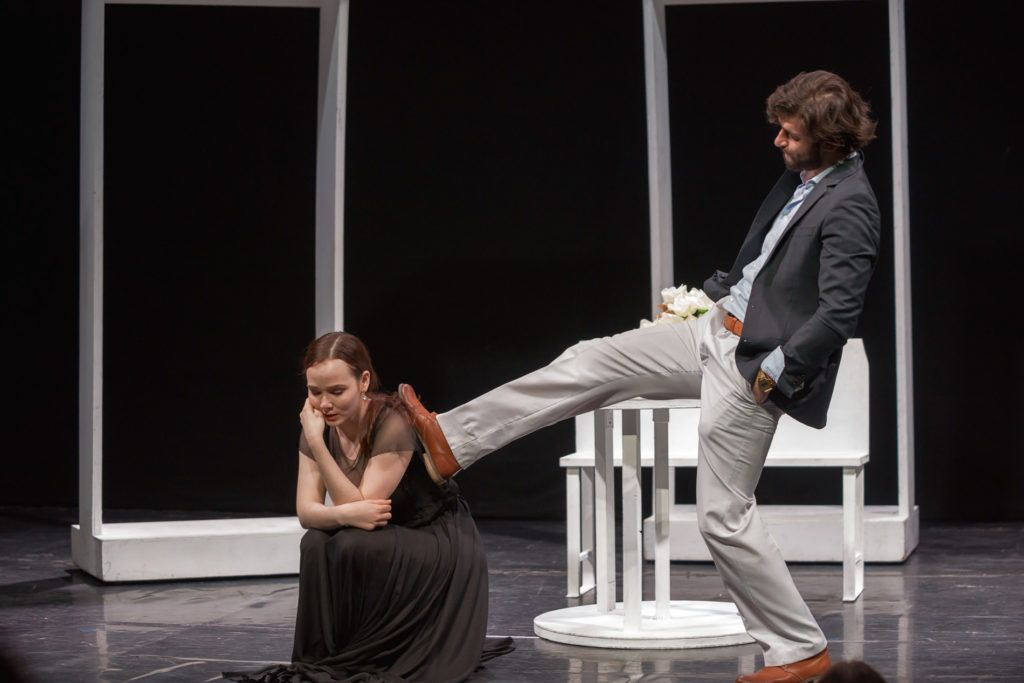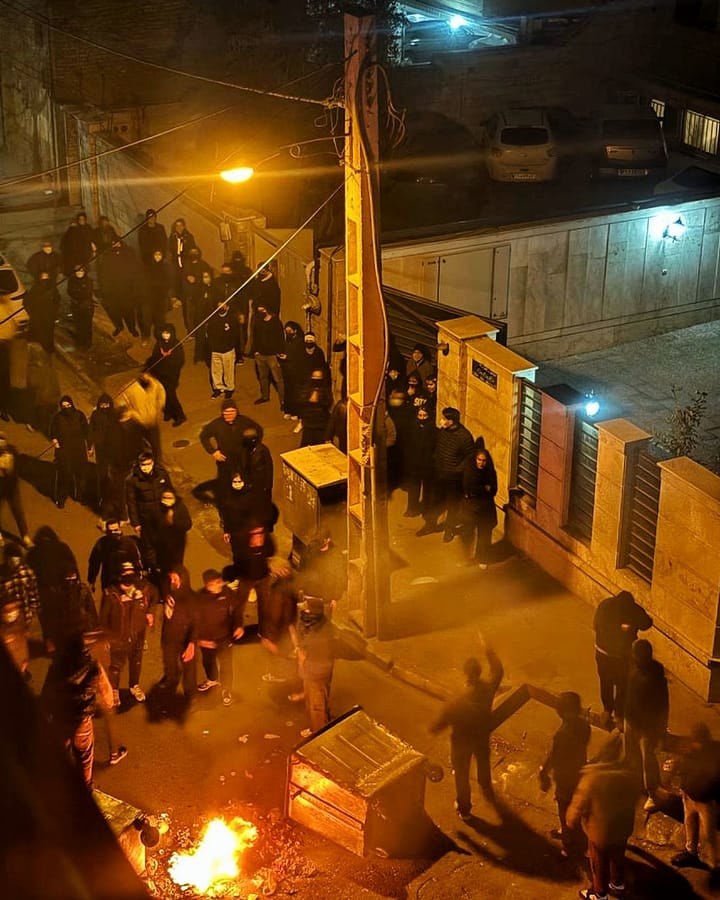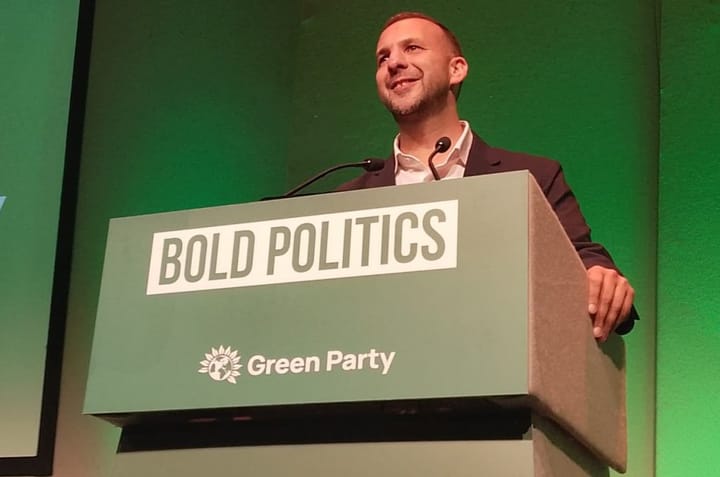When I think about the current relationship between Ukraine and Russia, a certain conversation comes to mind. In 2007 in a university canteen in St Petersburg a former friend interrogated me over a cup of tea:
Alexandra: Why do you call yourself a Ukrainian? Why are you being such a nationalist? You live in Russia.
You speak Russian. You study in a Russian university. You ARE Russian.
That one phrase denied my not yet fully grasped right for self-identification. Not only could I not decide who I was, but the very attempt at deciding was deemed wrongful. Baffled by the question that gravitated towards the abstraction of national imaginary and defied any logic and reason, I couldn’t find a better argument than simply referring to what was a legal fact. “Ukraine” was written on my passport, and my semi-legal status in Russia wouldn’t let me forget that I was a foreigner.
The events of the year 2014 taught me that for Russian leaders, and many people enchanted with their imperial narratives, the abstraction of national greatness was more important than the factual banality of everyday life. The above-mentioned conversation ended with a humorous request that I never knew how to respond to: “Give us Crimea back”. It turned out to be a prophecy; much later I understood the gravity of what seemed to be a joke.
That and other conversations which would often repeat the same request laid the ground for my ever-growing outrage against any form of cultural imperialism. It is the presumed superiority and the desire of the Russian Federation to impose its authority that allows it to mark every person who dares to identify as Ukrainian as fascist. For Russia, the state that builds much of its ideology on the victory in the Second World War, fascism is the ultimate other. Coping with its post-soviet stance in the shadow of Russia for three decades, Ukraine and its people know how it feels to be at once reduced to insignificant and vilified as the source of all evil.
Those were the early 2000s, almost a decade before the Russian Federation actually annexed the Crimean Peninsula and placed a permanent threat of a military attack over Ukraine. Yet, what I find fascinating, and disturbing for that matter, in those conversations with my friends, and what also slips in the recent opus by the current Russian leader (http://kremlin.ru/events/president/news/66181), is that their desire to see Russia and Ukraine as ONE (one nation, one state, one people) is perceived as an act of love. Just as my Russian friends loved me and wanted me to be like them, the man in the Kremlin expresses his “great affection to Ukraine” and wants Russia and Ukraine to be alike. It is telling, though, that the rhetoric of “historical unity” and “natural, complementary partnership” has been always accompanied by controlling and intimidation tactics, economic and military.
At first, this also looks like a contradiction that defies any logic and reason – this is not what love is! – but under closer investigation, this contradiction becomes disturbingly familiar. For all the interpretations of love that exist, the feminist take on it explains well this particular type of abusive love. It is not the kind of love that leads to the creation of the world of equal partners; it is the love where instead of accepting the other as equal, the one wants to incorporate it, possess it and eventually neutralise it. It is a very oppressive kind of love permeated by unequal power dynamics: overpowering, destructive and colonial.
Yet, it is also normalised, if not glorified, by the arts and pop culture, starting from the great Russian literature itself. Another conversation, this time from Alexander Ostrovsky’s classic Without a Dowry (https://muse.jhu.edu/article/22406/summary) comes to mind. Larissa, a young woman who has no dowry, and therefore nothing to offer her suitors, confronts a man, who desires her. He is willing to take her even though she was disgraced by another man.
Larissa: I have not found love, so I’ll look for gold. Go, I cannot be yours.
Karandyshev (getting up): Oh, do not repent! (He puts his hand over the edge of his coat.) You must be mine.
Larissa: Whose to be, but not yours.
Karandyshev (fiercely): Not mine?
Larissa: Never!
Karandyshev: So nobody’s you will be (Shoots a pistol at her).
Caught in the midst of territorial and possessive men, none of whom love her for what she is, Larissa declares she would “look for gold” instead. She believes she can accept the rules set by men surrounding her: if one is deprived of genuine love, one settles for material comfort as a substitute. Of course, for Ostrovsky’s romantic protagonist, a life driven by material values would have been unbearable, so she dies.
The tragedy of this story is that in reality Larissa, a hostage of the environment ruled by men, did not have a choice. A famous Russian saying goes: “He beats you because he loves you”. It is not a perversion or a sadistic pleasure: hitting a partner and causing suffering is intimate. And therefore, it is often seen as a sign of true closeness and love. Both quoted dialogues, from real life and from a literary piece, leave one of the interlocutors with an impossible choice: submission or non-existence. This is the choice that Russia has been forcing upon Ukraine: stay obedient or be destroyed.
It is hardly an accident that the main European bully comes from a country that has a horrific record of domestic violence and femicides. The “natural” connection between love and violence has been encoded in Russian imagination since the dawn of modernity (https://www.jstor.org/stable/10.7591/j.ctt1287csp). The more I think about the relationship between Ukraine and Russia, the more I see it as a romantic relationship that turned abusive. The Russian leader is so painfully attached to Ukraine that he cannot accept a mere thought of separation from the object of his affection. He would rather destroy it than see it with someone else (be it the EU, NATO or the US).
On the one hand, this psychotic attachment is engrained in the Kremlin’s understanding of Russian identity based on a nineteenth-century idea of the natural unity of Great, White and Little Russia, which represent contemporary Russia, Belarus and Ukraine. The separation of these three elements is an existential threat – it means the disintegration of Russia itself. On the other hand, the Russian president constantly needs to prove his status and virility both in the eyes of the west and before his predominantly patriarchal constituency. Unfortunately, Ukraine’s role in this power game is instrumental. Like Larissa, it is a hostage of the situation and a waste product in someone else’s struggle for approval by the peers.
That is why the Russian president is unwilling to talk to his Ukrainian counterpart. Ukraine, like an abused lover, doesn’t deserve to be acknowledged, and its agency must be annihilated. Ukraine doesn’t even deserve a war (not that I wish for it) but is pressured by petty intimidation, cyber-attacks and endless military training operations near its border. There must be specific terms for that in the diplomatic jargon but some might call it “stonewalling” and “gaslighting”. In a romantic relationship, these tactics are aimed at a complete moral subjugation of the abused side; in Russia + Ukraine love story these tactics are aimed at proving that Ukraine is a failed state and Ukrainians can’t govern themselves.
And for the same reasons, the Kremlin boss is willing to communicate with the US and NATO. He sees these entities as worthy sources of approval and validation. Russia–US’s talks about the crisis in Ukraine carried out without Ukraine are supposed to be yet another proof of his capacity to dominate, meaning to destroy political regimes and the lives of thousands of human lives on both sides of the Russian border. Isn’t it what European colonialists and neocolonial powers have been doing for centuries anyway?
In a world built on the principles of hierarchy and power inequality – between genders, races, ethnicities, classes – men’s politics lead to denigration of women, people of colour, minorities, the poor. It also leads to the current situation between Ukraine and Russia.
Of course, countries are not people, but those who govern them are. Brought up in a corrupt system that accepts violence against women as a rule of nature, the Russian leader employs the same techniques in the sphere of international politics. And the vast majority of political leaders are the same lot, locked in the patriarchal mentality of a “strong dominant man”. Their methods and approaches come from the same toolbox, and their bias will prevent them from helping Ukraine and other countries along the Russian border. I just hope they will not make things worse in the name of abstract notions of national greatness and international justice all of which serve to protect existing hierarchies and have nothing to do with the daily lives of millions of people.
The case of Ukraine is just one of many demonstrations of the danger patriarchy presents to the world. Its imprint is detectable in every aspect of human and social life: from intimate relationships to geopolitics. The one who dares to abuse a woman will opt for destructive politics which in its turn lead to more abuse at all levels. The humankind that validates violence against women can only produce violent politics and has little chance of survival.

The first photograph illustrating this post is Ukraine, courtesy of Inna Pravdenko.
Inna Pravdenko is a writer and editor based in France. Born and brought up in Ukraine, she studied art history in Russia and transcultural studies in France. The experience of being a woman, a migrant, an artist and a “retired” academic feeds her writing and shapes her political views. Elena Malysheva is a Russian teacher and a translator based in London. She was born in Leningrad and studied linguistics in St. Petersburg and sociology in the UK. She believes that learning languages and translation help build bridges between cultures in the increasingly divisive political climate.



